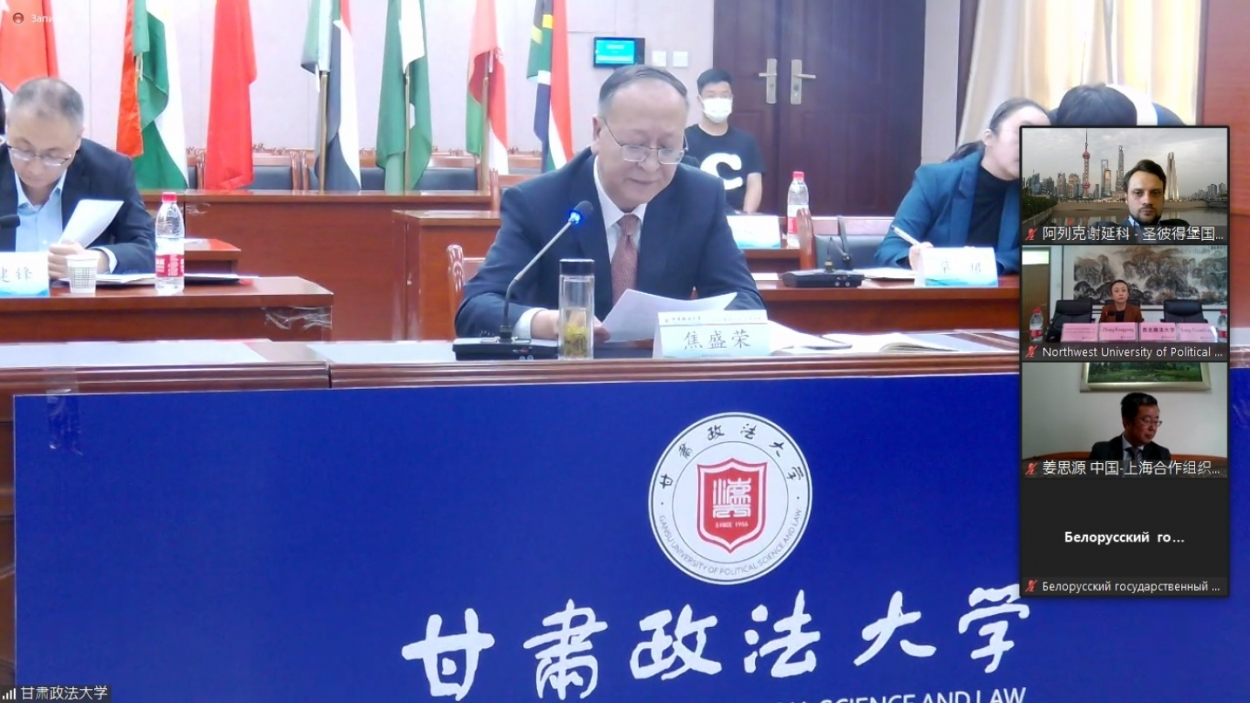St Petersburg University joins the Association of Law Universities of the Shanghai Cooperation Organisation
St Petersburg University has taken part in the first meeting of the Association of Law Universities of the Shanghai Cooperation Organisation (SCO). At the meeting, representatives of the universities from Russia, China, Kazakhstan, Uzbekistan, Kyrgyzstan and Tajikistan discussed the development of joint projects.

The participants were greeted by: Liu Xiaohong, Rector of Shanghai University of Political Science and Law; Larisa Efremova, Chair of the Russian Permanent Expert Working Group on the SCO, and Vice-Rector for International Affairs of the Peoples’ Friendship University of Russia (RUDN Universuity); and Liang Xiaonan, Director of the President Office (China) of the SCO University.
The participants have observed that a modern university is hard to imagine without intensive international cooperation. The main tasks of the Association will therefore be to develop research projects, academic exchange, networking programmes, and organise lectures for students and teachers.
Valeriia Malomuzh, Acting Vice-Rector for International Affairs at St Petersburg University, stressed that the University is committed to active development of academic cooperation within the SCO framework, since it has had previous successful experience of such work.
St Petersburg University implements more than 60 academic programmes incorporating a Chinese component, and their number has increased ninefold over the last decade.
Valeriia Malomuzh, Acting Vice-Rector for International Affairs at St Petersburg University
Today, every 18th programme at the University includes disciplines related to the study of the language, culture, traditions, and economic and legal specifics of other countries. For example, St Petersburg University offers programmes in law, where students study Chinese law in addition to Russian law. There is also a programme on Japanese law. Similar programmes have been developed for economics, international management, and tourism.
Ilia Vasilev, Associate Professor and Academic Supervisor of the master’s programme in sports law at St Petersburg University, noted that in addition to programmes with a foreign component, students from the SCO countries take up programmes taught in the Russian language. As an example, he referred to a master’s student in the programme that he heads. The student is a Chinese citizen who speaks Russian. She is successfully completing the programme and plans to build a career as a sports lawyer. Ilia Vasilev believes that she will be able to find a job not only in Russia, but also in China: ’The knowledge acquired at St Petersburg University will enable students to pursue a career in law, for example for a football, basketball or hockey club in any country. This is because the industry is regulated "pyramidally" by international and continental sports federations through unified rules that apply in Russia, the People’ Republic of China, and other countries.’
Aleksandr Alekseenko, Academic Supervisor of the bachelor’s programme "Laws (with Advanced Study of the Chinese Language and the Law of the PRC)", has proposed the publication of joint research papers, including in the Chinese language.
The meeting was attended by officials and academic staff from St Petersburg University, Peoples’ Friendship University of Russia, The Russian Presidential Academy of National Economy and Public Administration (RANEPA), Far Eastern Federal University, Russian-Tajik Slavonic University, Shanghai University of Political Science and Law, Gansu Institute of Political Science and Law and other universities of the SCO member states.
During the meeting, members of the association made proposals on training specialists through joint programmes and the involvement of employers in: developing programmes; organising student internships and practical training; working on academic articles and publications; and conducting legal research in the trade and economic sphere.
The participants expressed the hope that there would be an improvement in the situation of the coronavirus pandemic, which would allow further work in a face-to-face format.

